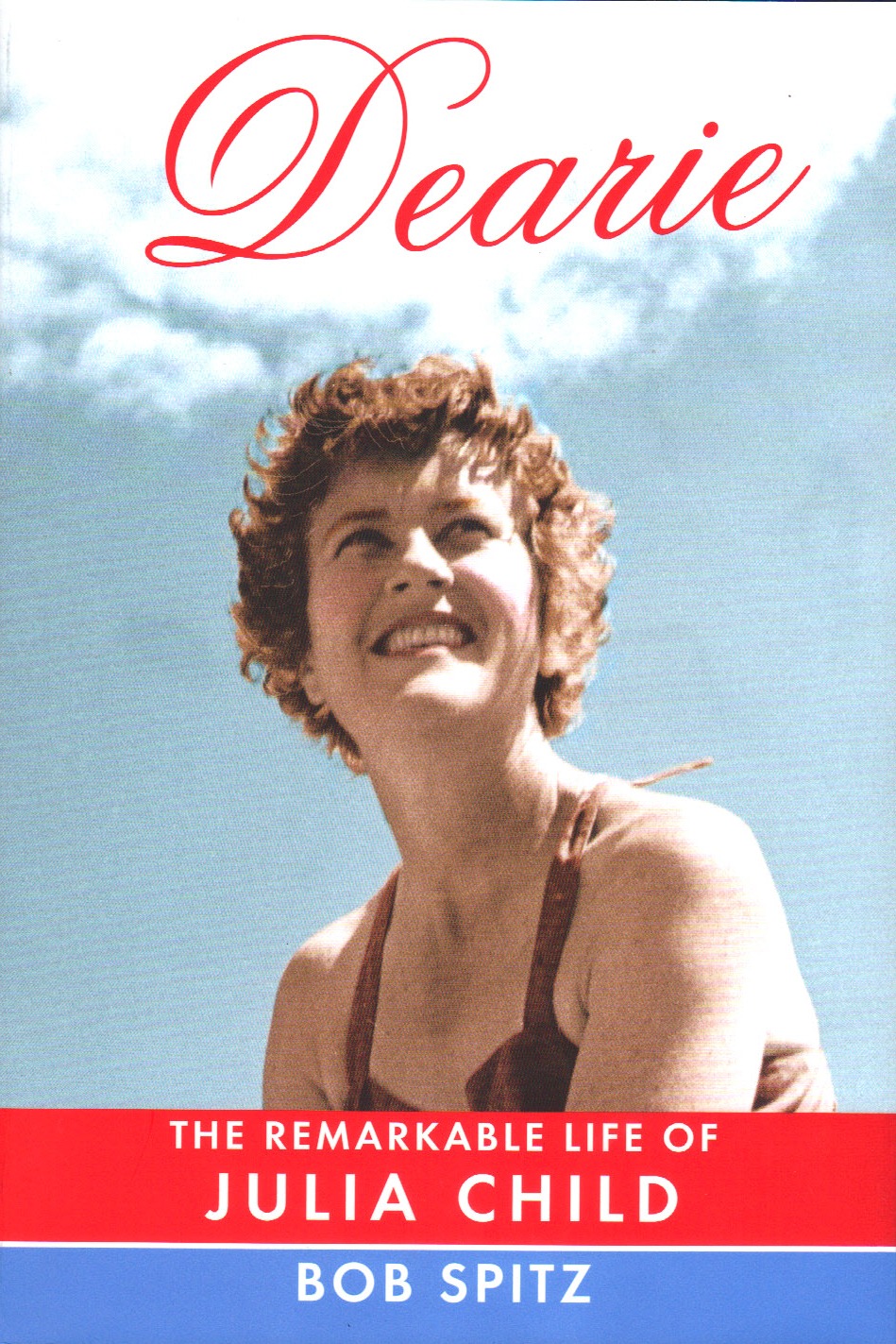Dearie: The Remarkable Life of Julia Child

Among all the centennial salutes of what would have been Julia Child’s 100th birthday on August 15, none surpassed getting a Google Doodle. Still, in the spirit of what she did, Julia Child Restaurant Week and The Smithsonian’s re-opening of her kitchen come pretty close to matching Google’s efforts. Add to the celebratory mix a fine, new biography just out – Dearie: The Remarkable Life of Julia Child by Bob Spitz (Knopf). The author, who has won numerous awards for his celebrity bios (among other writings) of music icons like The Beatles and Bob Dylan, is already stirring up a buzz with Dearie.
Spitz’s book represents the best in the genre – solid research, an engaging narrative and a persuasive sense of the timeliness and significance of his subject. He meets with his own style what he sees as Julia’s – an informed but “casual approach to a vital and substantive discipline.” For her, the discipline was French cooking; for him (“an avid cook” who grew up on her books), it was writing a biography, at her suggestion, that would testify to her “insatiable hunger” to express herself in her own way. Her rising fame coincided with a wider cultural revolution about women’s roles (Julia was a de facto feminist). Betty Friedan’s The Feminine Mystique, which heralded feminism de jure, came out not that long after Mastering the Art of French Cooking). Meanwhile, Julia’s arrival in 1962 at WBGH, to take part in an academic public television show on reading, shocked the studio execs. The 50-year-old, gangly 6’ 3” nonconformist didn’t want to talk about her book so much as demonstrate techniques in it and thus demystify what was then considered forbidden territory for women. Only men were famous chefs; women were housewives. But there was Julia Child saying anyone can do Boeuf Bourgnignon! And thus began the series, “The French Chef,” which would not only change cooking and eating habits in American homes, but television itself. She was, as Spitz says, “the first educational TV star.”
Spitz confesses that the more he learned about Julia McWilliams Child in person (he met her in 1992 when he was on a magazine assignment in Italy and traveled with her through Sicily), from friends and colleagues, and going through the archives in the Schlesinger Library at Harvard (85 boxes), including her papers and those of her husband, the career diplomat Paul Child, the deeper his admiration, which probably accounts for the book’s size: 557 pages, including photos and index. It could have been longer, but Spitz shrewdly moved the documentation online so as to keep the narrative uninterrupted and conversational. And he clearly realized his promise to her to write a book in which the reader “could smell the food on the page.” Unhappy with a biography someone else was doing, she asked him to do one that would capture her personality as well as the sensuous world in which she moved. He thinks he has honored those requests. His Julia is larger than life, “her talent, relentless hard work and independent spirit jump off the page.”
The breadth and depth of his exhaustive inquiry – and his “love” for “Dearie” — her pet name for everyone, including him, beggars in the street, even dogs! — enabled him to achieve what eludes many biographers – a sense of a complex subject as an organic whole. Thus, the apparent disjunctions in Julia’s life — including her fleeing her conventional upper-class Pasadena roots to run off to Southeast Asia at the age of 31 and join a spy network —evolve into a sustaining coherent theme about her character (the sections on her on-air differences with Jacques Pépin are delicious). So easily does Spitz merge himself into his subject that it seems inevitable that he incorporates diction from her world into his own prose, as in “Nothing sustained her like a ripe idea, a fresh experience, a saucy challenge.” And check out those edited scripts from early shows on the book’s attractive inside hard covers.
Bob Spitz will be reading from Dearie on Friday, August 24 at 7 p.m. at Books and Books, 130 Main Street in Westhampton Beach, probably from the section where Julia discovers a spectacular fish dish at lunch in Rouen – “the meal that was about to change Julia Child’s life.”



